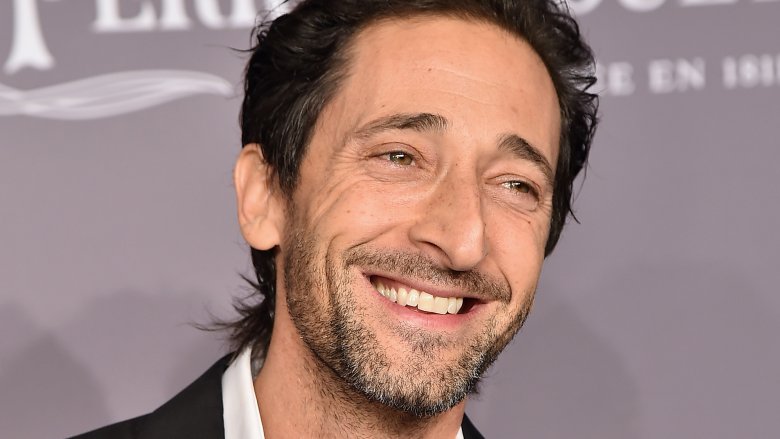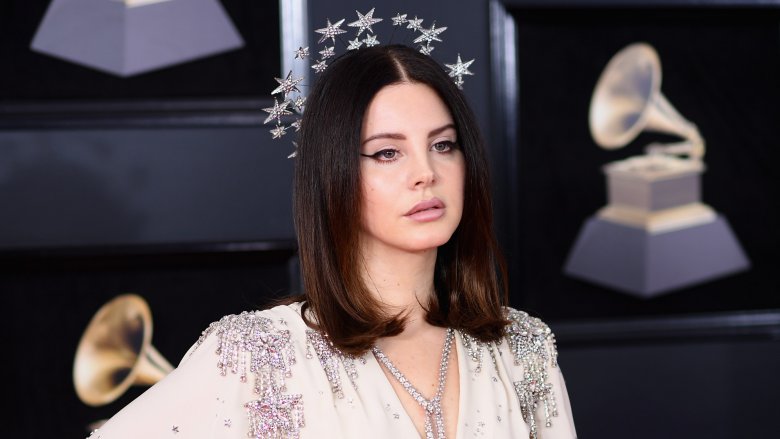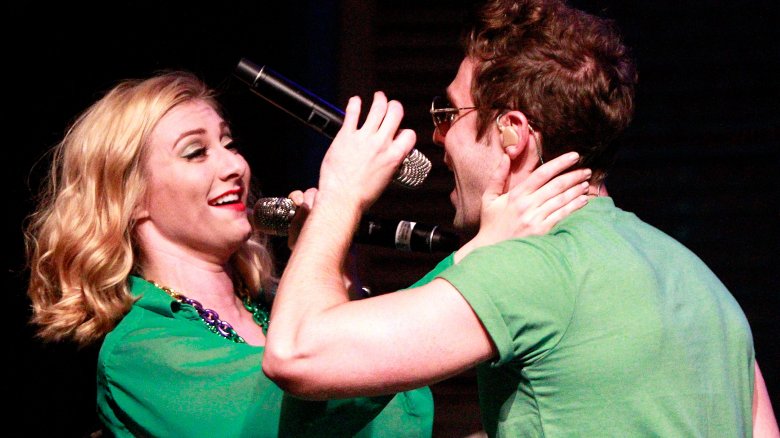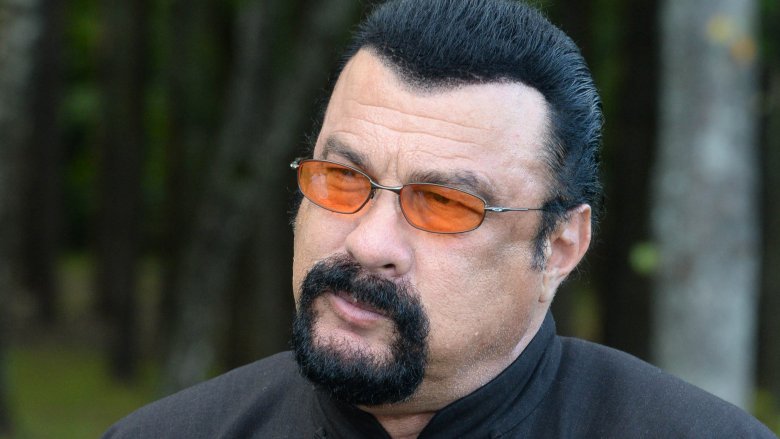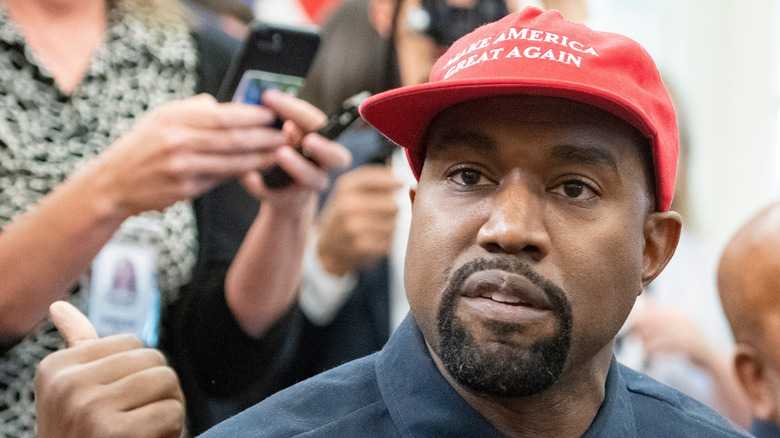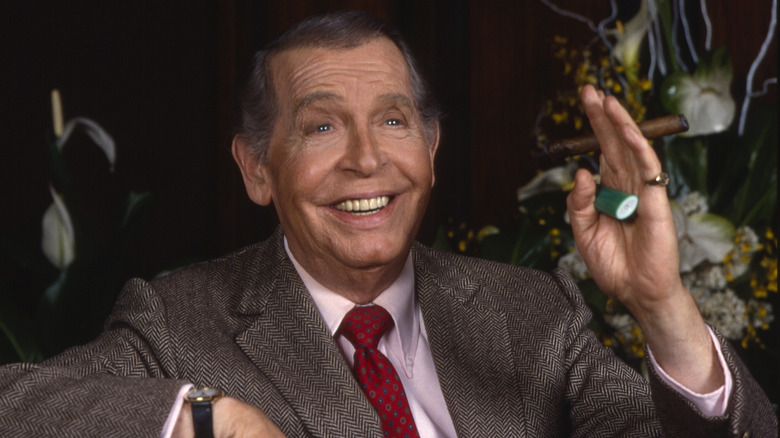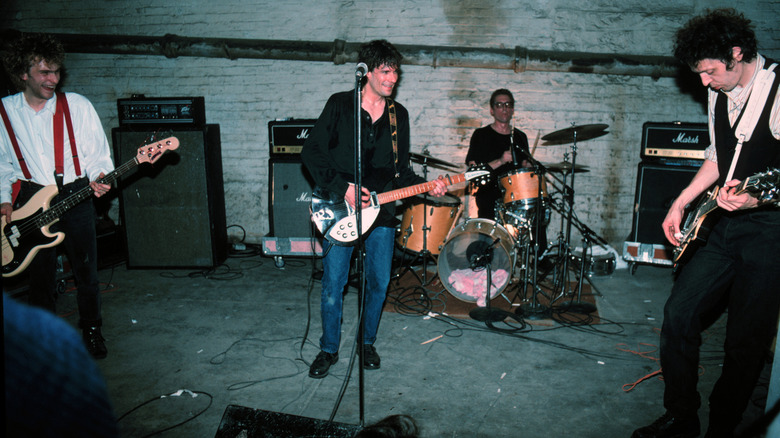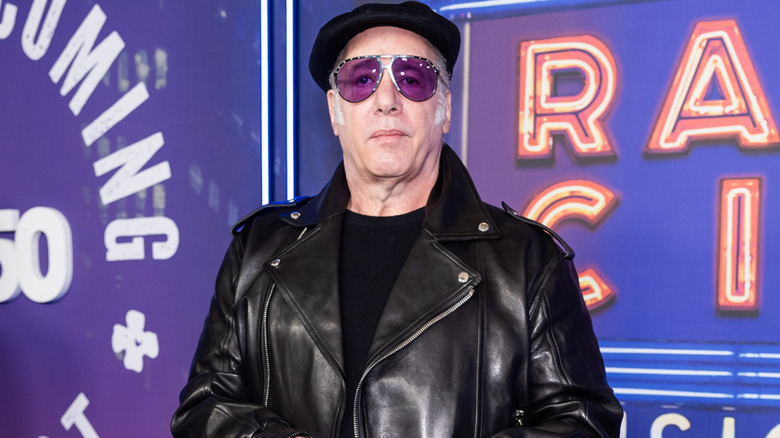SNL Performances That Destroyed Careers
It's hard to believe, but "Saturday Night Live" has been on the air for over 30 years. In that time, the show has logged a seemingly infinite number of memorable performances, both from hosts and musicians. If the opinions of the A.V. Club are to be believed, a performance on "Saturday Night Live" can still make or break an artist's career. As the site puts it, "[Show creator Lorne Michaels has] maintained the integrity of his show as an up-to-date snapshot of contemporary pop culture ... "SNL" is easily the single most important television show on which not to bomb." No pressure, hosts, bands, and musicians.
In the cases of the following acts (both musical and "comedic"), a poor showing on "SNL" ended up putting a real damper on some careers or portended a downward spiral. Curious to find out who paid the price for floundering on live TV?
Ashlee Simpson
We haven't heard too much from Ashlee Simpson in recent years, but back in 2004 she was still relevant on the pop music scene, what with her reality show and notable fashion sense. But it all came crashing down when she was caught blatantly lip-synching on "Saturday Night Live."
When Simpson got up to perform her second song of the evening, "Autobiography," pre-recorded vocals for another song, "Pieces of Me," started playing while she had the mic held away from her face, visibly not singing. Whoops! Simpson's knee jerk reaction was to do a weird little jig and then run off stage as her band awkwardly played on.
Cut to commercial and cue major backlash, including from "Saturday Night Live" show creator Lorne Michaels himself. Simpson later called in to MTV's "Total Request Live" to explain that she'd been suffering from severe acid reflux and her manager/father had insisted that she use a backing track to help her out. She told the show, "It's so embarrassing ... because it sucks. The total situation was a bummer. I made a complete fool of myself."
Audiences and music lovers agreed, and Simpson's career took a major dip in the aftermath. As Entertainment Tonight detailed in 2014, although her personal life underwent a number of developments (including two marriages), there's been little movement in terms of music-making. According to Idolator, Simpson saw poor album sales and only one of her songs eked its way on to the charts after the whole debacle.
Sinead O'Connor
Irish singer Sinead O'Connor caused a major stir with a 1992 "SNL" performance most remembered for its prescient political statement. At the end of her a cappella performance of Bob Marley's song "War," O'Connor pulled out a photograph of the pope, ripped it to shreds, and said, "Fight the real enemy." As the Herald-Journal described, network officials were horrified by O'Connor's unrehearsed actions.
According to Rolling Stone, the performance prompted more than 4,000 angered phone calls to NBC, and O'Connor was subsequently banned from the show. She experienced major backlash, as detailed by the New York Daily News, and spent the rest of the 90s making music (though nothing came close to the popularity of her 1990 single "Nothing Compares 2 U") and then announcing her (ultimately temporary) retirement. According to the paper, in 1997 she denounced her behavior on "SNL," saying it was "a ridiculous act, the gesture of a girl rebel."
In the 2000s, O'Connor reemerged after a long hiatus to explain her beef with the Catholic Church, justifying her "SNL" performance as a protest against the physical and sexual abuse endured by children at the hands of the church. Writing in The Washington Post, O'Connor explained, "Irish Catholics are in a dysfunctional relationship with an abusive organization ... I knew my action would cause trouble, but I wanted to force a conversation where there was a need for one; that is part of being an artist." In recent years, O'Connor has made headlines again for her erratic behavior, though sadly not as much for her artistry.
Adrien Brody
Okay, so Adrien Brody is still acting ("Peaky Blinders," anyone?), but it's safe to say he destroyed his career as an "SNL" host with a weird moment during his appearance as host back in 2003. When it came time for him to introduce musical guest Sean Paul, Brody appeared on camera wearing a dreadlocks wig, launching into an excruciating improvised 45 seconds in his best Jamaican accent. The unscripted stunt must have seriously pissed someone off, because Brody has never been invited back to host.
When Andy Cohen later asked "SNL" cast member and writer Tina Fey on "Watch What Happens Live!" who she thought had been the worst host ever, Fey silently but clearly mouthed "Adrien Brody" (via The Dishmaster). Brody later told Moviefone (via The Huffington Post) that he'd heard the rumors that he's banned forever (although Lorne Michaels had never officially told him so), but he sure hoped not, because he'd love to host again and "had a great time" the first time around. Well, that makes one of us.
Lana Del Rey
Appearing on the Jan. 14, 2012, episode, then-debut artist Del Rey's stiff performance of her song "Video Games" was widely and swiftly panned. Rolling Stone described the backlash, explaining that, "[Del Rey's] shaky, slightly dead-eyed "Saturday Night Live" debut was treated like a national emergency, inspiring weeks of debate." News anchor Brian Williams even sipped the "Haterade," writing to Gawker blogger Nick Denton, "Brooklyn hippster [sic] Lana Del Rey had one of the worst outings in "SNL" history last night — booked on the strength of her TWO SONG web EP, the least-experienced musical guest in the show's history, for starters."
As Entertainment Weekly reported at the time, Twitter also went crazy after the performance; actress Juliette Lewis even felt compelled to comment, writing in a since-deleted Tweet, "Wow watching this 'singer' on "SNL" is like watching a 12 yearold [sic] in their bedroom when theyre pretending to sing and perform #signofourtimes." Del Rey told Rolling Stone about the negative impact the performance nearly had on her career, explaining how, "Everyone I knew suddenly wasn't so sure about me ... They were like, 'Maybe I don't want to be associated with her — not a great reputation." However, the magazine reported, her producer Jimmy Iovine came to the rescue and introduced her to in-ear monitors.
In this case, the "SNL"-induced career meltdown was short-lived; Del Rey's album "Born to Die" was released two weeks later on January 27 and went on to sell over 7 million copies as of 2014.
Karmin
Haven't heard of Karmin? There's a chance that their widely criticized 2012 "Saturday Night Live" appearance might have something to do with that. The duo, who found a ton of early fanfare on YouTube where they showcased covers of other people's songs, performed two original songs, "Brokenhearted" and "I Told You So," on the show. Spin subsequently ripped their performances apart, calling their music "anonymously upbeat would-be club bangers co-written by the usual chart 40 hitmakers, the kind of hip-hop songs that use phrases like 'hip-hop song' ... This was hip-hop even Mitt Romney could enjoy, though he seems to have a little bit more personality." Sorry Mitt, but ouch.
In the aftermath of their performance, Gawker dismissed the band as a "YouTube novelty act" while Grantland called them "the favored music among people who post on Facebook 12 times per day." In following years, their albums barely charted and their career pretty much fizzled out. They've since broken up.
Fear
On Halloween 1981, punk band Fear put in a seriously memorable "Saturday Night Live" performance in which, per The Daily Beast, "Noses were broken, brawls broke out between New York and Washington, D.C., natives, pumpkins were launched at security guards' heads and a NYPD-versus-punks chase out of Rockefeller Center spilled into the streets outside." The band was apparently a favorite of then-cast member John Belushi, Grantland reported, also noting that "Fear got on because nobody at "SNL" knew what they were doing at the time."
According to Flavorwire, the performance left the show with an estimated $20,000 in damages; a la Adrien Brody, they were officially banned from appearing again and some clubs refused to book them. Fear's frontman Lee Ving later explained to Rolling Stone, "They swore that night they'd never rebroadcast our footage ... It was shortsighted of the 'Saturday Night Live' staff and ownership to dis-include the performance in their anniversary episodes."
The band certainly gained infamy, if not actual fame, from the performance.
Steven Seagal
When "Saturday Night Live" creator Lorne Michaels calls you out as the biggest jerk who's ever been on the show and remembers you as the worst host ever you know you've really failed spectacularly. Such was the case with actor Steven Seagal, who appeared as the host on an excruciating 1991 episode and was, you guessed it, subsequently banned.
Cast member David Spade reminisced of Seagal to Andy Cohen on "Watch What Happens Live," "He was a little tough ... tough to work with. He was hard, he didn't want to play along." Norm Macdonald, another cast member, recalled Seagal to the New York Daily News as "just not a nice guy." And finally, Tim Meadows told the authors of "Live from New York," "[H]e would complain about jokes he didn't get ... He just wasn't funny."
It's difficult to say if "SNL" alone led to Seagal's downward trajectory, but what is undeniable is that his career flamed out, with Seagal ending up in mostly straight-to-video projects by the 2000s. Things haven't been going too swimmingly recently either: in 2013, Vice dubbed him "the lamest guy ever," and in 2017 and 2018 he faced multiple allegations of sexual assault, including from actress Portia de Rossi.
Kanye West had a trio of disastrous, politically charged performances in 2018
In 2018, one of the biggest "SNL" controversies of all time occurred when Kanye West performed a few songs on the television staple with increasingly divisive behavior. First, he and rapper Lil Pump appeared on stage dressed as a Perrier and Fiji water bottle, respectively, for the song "I Love It." They even modified the chorus to a raunchier version, prompting the show to post an edited version on YouTube. While his second performance, this time featuring Teyana Taylor, was tamer, it was his third appearance that night on the legendary stage that caused the most controversy.
When West showed up wearing a "Make America Great Again" cap and began to spew a pro-Trump speech in the midst of his live rendition of "Ghost Town," even the appearance of guest artists 070 Shake, Kid Cudi, and Ty Dolla $ign couldn't stop audiences from being baffled — and angry. The performance was ultimately cut during the live broadcast due to time restraints, but the full clip made its rounds on the internet for all to see. "I'm [gonna] put my Superman cape on," West quipped at the angry live audience as he placed his MAGA cap back on his head after the performance. He proceeded to share his personal rhetoric for several minutes, leading to a now-viral moment.
As a result, and after additional incidents, including threatening cast member Pete Davidson during his relationship with West's ex, Kim Kardashian, many assumed that the rapper was banned from appearing on the show in the future. Now, the truth about Kanye West's ban from "SNL" has come out: he is not banned, but the program has taken several steps to stay out of the drama that Ye inevitably brings.
Milton Berle's bad behavior marked the beginning of the end for Mr. Television
Among the many hosts that "SNL" didn't like working with, along with people who have been blacklisted from "SNL," Milton Berle (aka "Mr. Television") is among the worst of both lists. When the infamous entertainer was invited to host the show in 1979, things were reportedly off to a bad start from the get-go. According to "Saturday Night: A Backstage History of Saturday Night Live," Berle immediately assumed he was bigger and better than every person on set and off. "He came in with the attitude 'I am TV,'" one writer ascertained in the book (via Cracked). "Not 'I used to be TV,' but 'I am TV.'"
Among his indiscretions, Berle berated the writing team and their intelligence, mugged for the cameras in a cheesy and over-the-top way, and even reportedly exposed himself in front of crew members. By the time he was on stage, even his performance couldn't quell the ick. He launched into a series of racist jokes and ultimately caused some audience members to leave when he started singing a cringeworthy rendition of "September Song." What made it all worse is that Berle showed no remorse for his act in front of and behind the scenes, even assuring "SNL" creator Lorne Michaels that his standing ovation was pre-arranged.
As a result, Berle was banned from the program from that point on. Years later, actor J.K. Simmons portrayed "Uncle Miltie" in the film "Saturday Night," which detailed the first (chaotic) episode of the show. Simmons' performance highlighted the seedy, shady side of the late-night entertainer — and showed just how unliked he was by anyone involved or in the know of the show's history.
The Replacements performed drunk on stage -- and got banned
Despite all of the dark secrets that the cast of "SNL" tried to hide, rock band The Replacements became one of the most well-known blemishes on the show's legendary stage. In 1986, the band appeared on the program as a way to boost album sales for their album "Tim," which their record label took great pains to secure. The band, which was reluctant to participate in more commercial promotions like music videos, was ironically the force behind the public move. "The compromise [with our label] was that we'd do live TV if they could swing it, thinking that they couldn't," singer-guitarist Paul Westerberg recalled in "Trouble Boys," an authorized biography of the band (via Rolling Stone). "Me and my big mouth."
The performance itself was messy, as the group was drunk, stumbling on their words, and even out of tune on their own song. Needless to say, they were banned from the program and eventually devolved into more chaos. The group eventually reunited on stage on "The Tonight Show with Jimmy Fallon" in 2014, almost three decades after their last disastrous NBC performance. While it may not have made up for the cringe-worthy appearance in their heyday, at least they had a chance at redemption by doing what they do best: rocking out.
Andrew Dice Clay caused controversy when hosting the show
While there have been many skits on "SNL" that really pushed boundaries, there have also been hosts who have caused just as much controversy. In 1990, comedian Andrew Dice Clay was a household name due to his questionable content, known for being misogynistic and his hateful material, but "SNL" creator Lorne Michaels still took a chance on having Clay host his late-night program. But from the moment the entertainer entered the infamous Studio 8H, things devolved from there. From the get-go, the "SNL" team knew that they needed to keep Clay on a short leash. "As writers, we went into work knowing that Dice wasn't going to do whatever he wanted, he was going to do what we wrote for him," the show's Christine Zander told Vulture. "Simple as that. To think that having him host would allow him to do his offensive stage character on the show was absurd."
For the most part, Clay played the part, but the controversy surrounding his previous routines still stirred up more unrest. Both cast member Nora Dunn and musical guest Sinead O'Connor (was banned later in a separate incident) boycotted the show in protest of performing with him. There were even audience members who protested from their seats during his monologue, and the network initiated a five-second delay throughout the broadcast in case of any other egregious slip-ups. While the episode earned the television juggernaut its highest ratings of that season, the negative impression it left on audiences (and the show's history) remained. Plus, Clay's career continued to decline from there, and his bravado routine didn't remain at the forefront much longer.

